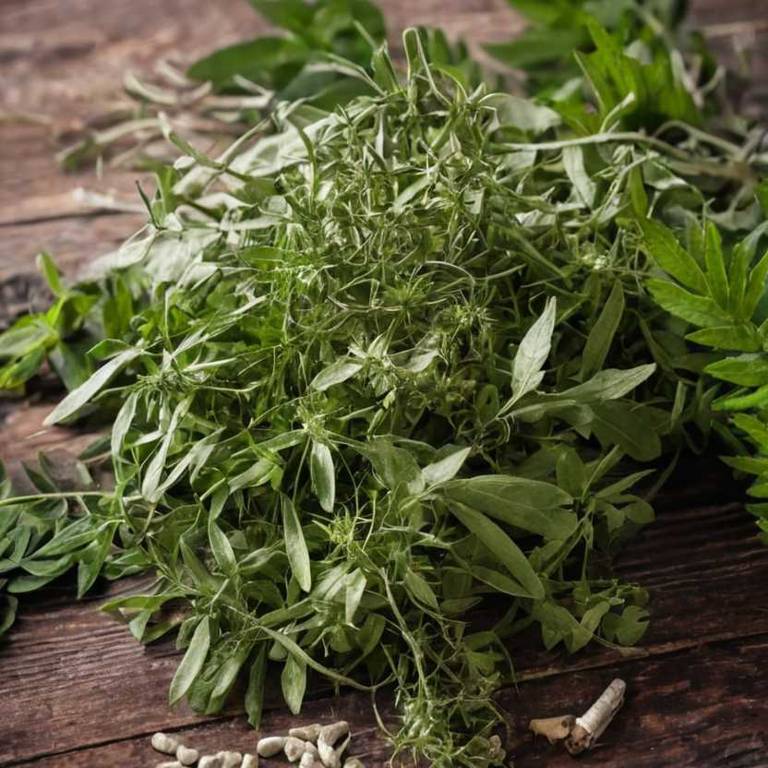Copaiba (Copaifera officinalis)
Copaiba (Copaifera officinalis) is a member of the Fabaceae family, native to South America, Brazil, and Amazon Basin. Traditionally, its resin, bark, and wood have been used for infusions, decoctions, and oil infusions.
This herb is particularly valued for its anti-inflammatory, tonic, and carminative actions, and has a long history of use in european herbal medicine, native american herbal medicine, and ayurvedic medicine.

Quick Facts / Key Information
| Common Name | Copaiba |
|---|---|
| Scientific Name | Copaifera officinalis |
| Plant Family | Fabaceae |
| Genus | Copaifera |
| Species | officinalis |
| Native Range | South America, Brazil, Amazon Basin |
| Plant Parts Used | Resin, Bark, Wood |
| Primary Medicinal Actions | Anti-Inflammatory, Tonic, Carminative |
| Primary Traditional Systems | European Herbal Medicine, Native American Herbal Medicine, Ayurvedic Medicine |
| Historical Preparation Methods | Infusion, Decoction, Oil Infusion |
Botanical Identity
- Scientific Name
- Copaifera officinalis
- Common Name
- Copaiba
- Synonyms / Alternative Names
- Copaifera, Copaíba, Brazilian Copaiba
- Plant Family
- Fabaceae
- Genus
- Copaifera
Botanical Description
- Growth Habit
- Perennial herbaceous plant.
- Height
- It typically reaches a height of 15 to 30 meters.
- Leaves
- Smooth, elliptic leaves with upper surface dark green and lower surface pale green, featuring prominent stomatal bands along the midrib.
- Flowers
- Inflorescences are terminal racemes bearing small yellow flowers with five sepals and five petals, actinomorphic, lacking distinct markings or specialized structures.
- Stems
- Stems are erect, woody, with opposite branching, and covered in short, stiff hairs.
Traditional Uses / Historical Use
Traditional Systems
- European Herbal Medicine
- Native American Herbal Medicine
Historical Preparation Methods
- Infusion
- Decoction
- Oil Infusion
- Poultice
Medicinal Actions
- Anti-inflammatory
- As described in traditional systems, a gentle anti-inflammatory, in tissue-soothing contexts.
- Tonic
- Historically regarded as a moderate tonic, for foundational support.
- Carminative
- In herbal literature, noted as a calming carminative, within digestive system contexts.
- Expectorant
- In herbal texts, considered a mild expectorant, for breathing-focused uses.
Active Compounds
- Terpenoid
- A large class of naturally occurring compounds derived from isoprene units.
- Essential Oil
- A collective term for aromatic compounds extracted from plant material.
- Flavonoid
- Plant-based polyphenolic compounds frequently distributed throughout aerial plant parts.
- Phenolic Acid
- Naturally occurring phenolic compounds present in many plant species.
Modern Research Overview
Contemporary research on this plant includes areas such as chemical analysis, laboratory-based studies, and observational research. Detailed summaries of published findings are not included at this stage and will be added during future content updates.
Safety & Contraindications
- General Precautions
- Precautionary considerations have been reported in relation to this herb.
- Contraindications
- Reported information suggests that this herb may be contraindicated in specific circumstances.
- Allergies
- Sensitivity or allergy-related effects have not been clearly established.
- Drug Interactions
- Interactions with prescription medications have not been well documented.
- Toxicity
- Toxic effects associated with this herb have not been well documented.
- Pregnancy & Breastfeeding
- Use during pregnancy or breastfeeding has not been clearly established in available sources.
Preparation & Usage Methods
- Infusion
- A preparation method involving steeping plant material in heated water for a short period.
- Decoction
- This method uses sustained heat to extract compounds from firm plant structures.
- Poultice
- This method uses direct contact between plant material and the skin.
- Tincture
- A preparation involving soaking plant parts in alcohol for extended extraction.
- Infused Oil
- Oils are infused with plant material over time to absorb constituents.
Growing, Harvesting & Storage
Growing / Cultivation
- Soil
- Prefers loamy soil with well-drained conditions. Typically grows best in organically rich soils.
- Sunlight
- Thrives in partial shade. Tolerates full sun to partial shade.
- Watering
- Prefers well-balanced moisture levels. Tolerates periodic dry conditions.
Medical Disclaimer
The information provided on this page is for educational and informational purposes only. It is not intended to diagnose, treat, cure, or prevent any medical condition. Always consult a qualified healthcare professional before using any herb for medicinal purposes.